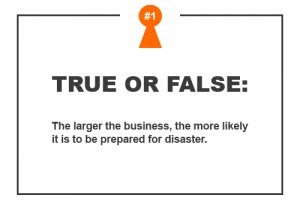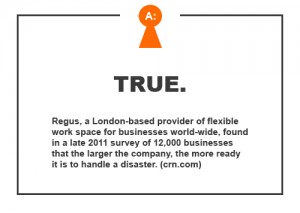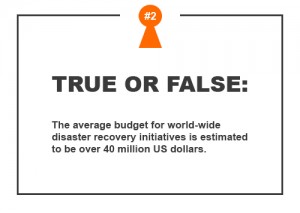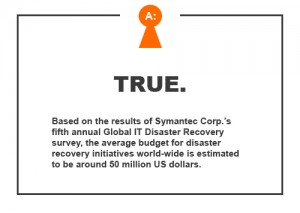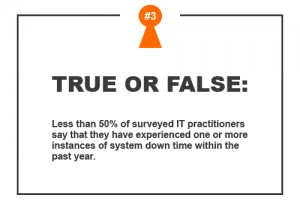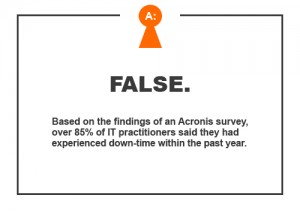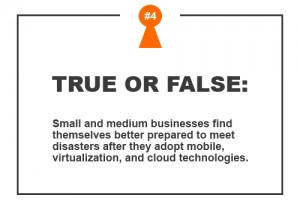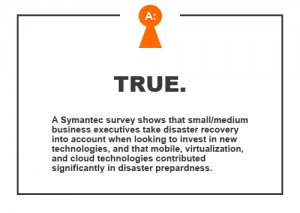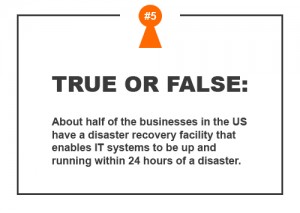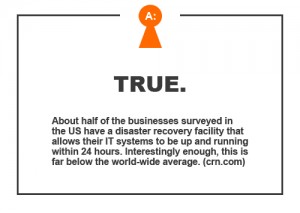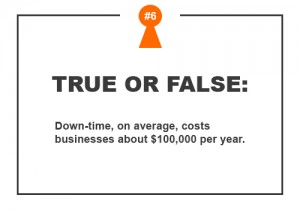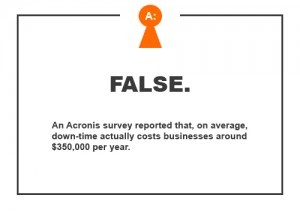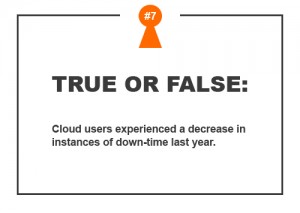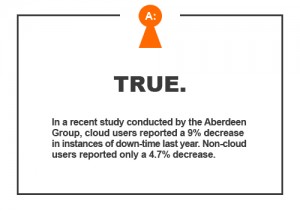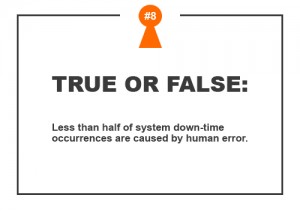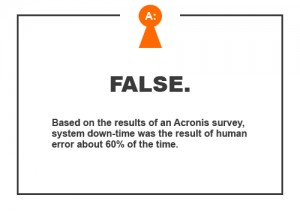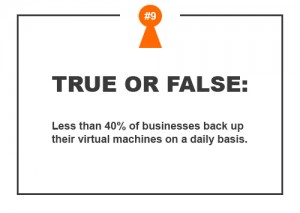Archive for the ‘online marketing’ Category
Pod 2 arrives at TurnKey no comments
If you’ve been hanging around the TurnKey data center for the past week, you’d be sure to hear a lot of “It’s here! It’s here! It’s here!” Why? Because TurnKey Internet has been receiving shipments of brand new servers and most importantly, the pieces to build Pod 2!
WAAAAY faster than expected, our data center will expand by over 20% and within the next 30 days we expect Pod 2 to be up and running. We’re using the same high-tech, green, environmentally conscious technology but on a larger scale. Trust us when we say- This is still just the beginning!
Not following us on Facebook, Twitter or Instagram yet? Well we got you covered (but you should still go do that!). Check out some photos below and get caught up.
Emily next to the truck!
Getting ready to bring ’em in.
Getting some help from the nice delivery guys!
Just a preview…
Racks on racks on racks!
Follow Us :
Share :
#Facebook? no comments

By now, most of us know what hashtags look like. We may not know exactly what they do, but if you’re on social media, you’ve most certainly seen a hashtag. Or, at least, now you have.
The hashtag functions as a simple way to share content. When a hashtag is used, keywords or phrases become searchable for other users of the same social network, such as Twitter, Instagram, and now Facebook. You can “hashtag” a word, phrase, person, event, or… really anything you want. For example, on Twitter, during the past NBA Finals games, I “tweeted”, “yo mama’s as ugly as a Tim Duncan fast break #nbafinals.” Now, anyone who is searching #nbafinals on Twitter can see what I, among thousands of others, was saying before the Heat (unfortunately) won their second title with LeBron.Here is a little background info:
It’s an easy concept as well as a great tool. It allows users to see what other people are talking about and/or to see what is trending around the world in general. Until now, Facebook had yet to incorporate hashtags into their site. So, what took them so long?
Did they not want to succumb to Twitter’s brilliant idea? Is it a privacy issue? Is everyone who works at Facebook stuck in a Zuckerberg Colony in Silicon Valley where The Zuck, himself, shields his employees from any other form of social communication?!
I’m not sure, but it’s here now and we will just have to wait to see if it’s here to stay!
Your friend,
#Dylan
Follow Us :Share :
News from the social scene – Yahoo! acquires Tumblr no comments
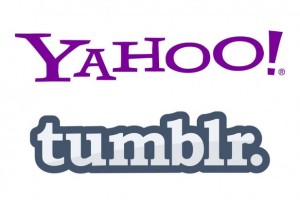 Just a friendly update from the social side of TurnKey Internet: Yahoo! has acquired Tumblr! If you’re unfamiliar with either, wake up. Just kidding (kind of). Yahoo! is an Internet corporation best known for its web portal and search engine, and Tumblr is a multimedia microblogging and social networking site.
Just a friendly update from the social side of TurnKey Internet: Yahoo! has acquired Tumblr! If you’re unfamiliar with either, wake up. Just kidding (kind of). Yahoo! is an Internet corporation best known for its web portal and search engine, and Tumblr is a multimedia microblogging and social networking site.
These days, alliances and acquisitions are forming between prominent Internet sites faster than you can say “prominent Internet sites”. We’ve mentioned a few of them on the TurnKey blog before, like in my tirade about Instagram’s policy changes following Facebook’s billion-dollar buy-out, for example. I still think that was so uncool, but I’ll leave it at that… for today.
Speaking of billions of dollars, Yahoo! purchased Tumblr for $1.1 billion… in cash! I wonder which lucky Yahoo! employee was given the task of making that truckload of bills rain all over the Tumblr team. That probably didn’t happen, but maybe it did, and this is my article.
To give you a snapshot of the information that I’ve dug up in my webscapades (did you like that?), apparently Tumblr will remain its own entity, as a separate business, independently-owned and operated. The deal is being spoken of in an almost partner-like manner, with mentioned plans of integrating search functions into the microblog as a means to surf its content more easily.
I think it was pretty smart of Yahoo! to shell out the big bucks and scoop up Tumblr. Let’s just hope they keep their very public promise to “not screw it up”. I wonder what that was a reference to…
Anyway, I’ll keep this article short and sweet, and leave you with one final bit of cliff-hanging wisdom: When are we going to start mashing up company names like we do with celebrity couples these days? Facebingagram, AndroogleTube, Twittine… and now Yahumblr? How catchy! We’re wasting so much of our valuable time with all of these unnecessary letters and syllables.
Follow Us :Share :
The Disaster Recovery Trivia Challenge has a new home 2 comments
Hey there, everybody who has been playing our weekly Disaster Recovery Trivia Challenge! Hey, also, everybody who should be! If you’re confused, you should read this article, explaining what the Disaster Recovery Trivia Challenge is. Trust us, it’s not something you’ll want to miss out on. Especially if you like T-shirts and/or United States Dollars in quantities of one hundred.
Now that you’re up to speed and that we’ve gotten the more unfortunate news out of the way, we can proceed to the purpose of this article.
Our Disaster Recovery Trivia Challenge has been such a success, everyone! This is a fact that we are beyond psyched about. However, it’s outgrowing its home on our social sites faster than you can say “Disaster Recovery Trivia Challenge”, so we decided it’s time to relocate it to somewhere it has a little more room to breathe… like our blog, for example.
The game is the same in all other aspects; this is just a relocation of the weekly facts and answer reveals. You can still feel free to chat away on social media, since we–quite obviously–love to.
Here’s a round-up of what has happened so far:
And the winner is… BILL Y.!
And the winner is… NICK J.!
And the winner is… ALEX E.!
And the winner is… Russell G.!
And the winner is… Mike H.!
And the winner is… DARREN C.!
And the winner is… Empty Mirror Books!
Now that we are up to speed, here is this week’s TRUE or FALSE question:
So what do you think? Is it TRUE or FALSE? Tell us, and you could win a T-shirt and a shot at the grand prize of $100! You can post your guess here, or continue the conversation on our Facebook and Twitter pages. We don’t care how, we just want to give away T-shirts! Check back here later in the week to see if you’re our new winner! GOOD LUCK!
Even though the Disaster Recovery Trivia Challenge has a new home, you should still follow our social sites. We’re constantly on the look-out for share-worthy content on a vast array of super-cool topics–everything from hosting to gadgets to sustainability–and we’d love to hear your voice in the crowd.
Follow Us :Share :
reCAPTCHA: digitizing the printed word, one spam filter at a time 7 comments
 In 2009, Google went from having around 20,000 employees, to having millions of people all over the world working for them. Well… sort of.
In 2009, Google went from having around 20,000 employees, to having millions of people all over the world working for them. Well… sort of.
You might already be familiar with what is pictured below. If not, let me explain to you a little bit about something that I was recently informed about –this magical thing called “reCAPTCHA”.
 In the year 2000, I was worried about passing the 4th grade. I was anticipating that all the computers in the world were going to explode due to Y2K. I was hoping that I could fend for my family and not die of Dysentery on The Oregon Trail. Needless to say, life was rough.
In the year 2000, I was worried about passing the 4th grade. I was anticipating that all the computers in the world were going to explode due to Y2K. I was hoping that I could fend for my family and not die of Dysentery on The Oregon Trail. Needless to say, life was rough.
But Yahoo!—and hundreds of other web companies, for that matter—were dealing with a much larger epidemic than Dysentery—spam. No, not that gross, canned mystery meat, and definitely not George Michael’s Wham! This kind of spam is something (debatably) worse than both… combined!
We’ve all encountered spam in our email inboxes, but now, thanks to Luis von Ahn, we also have all run into what is stopping most of it.
Luis von Ahn grew up in Guatemala and worked in his family’s candy shop as a kid. Later on in his life, along with his college advisor, he was hired by Yahoo! to create a program that could tell the difference between a human and a form bot. They came up with “CAPTCHA”, which—and I’m serious here—stands for “Completely Automated Public Turing test to tell Computers and Humans Apart.”
While the name isn’t exactly the work of genius, these brilliant guys created a challenge-response test that could be predominantly passed by humans to block those evil form bots and eliminate as much spam as possible. These computer-generated, squiggly words are made so humans can read and submit them, but that computers cannot.
After becoming extraordinarily successful off this creation, Mr. von Ahn still found a weakness in his own program. The flaw? The 10 annoying seconds wasted while someone types in a CAPTCHA every time they come across one. After turning down a personal offer from Bill Gates to work for Microsoft and winning the MacArthur Fellowship Award in 2006, von Ahn re-created CAPTCHA and titled it…erm… reCAPTCHA! Luis von Ahn believed this new idea would be good for humanity, and as far as some other types of crowdsourcing go, I agree.
In 2009, Google bought reCAPTCHA and released it upon the masses. Now, what reCAPTCHA does is take the words we type in and use them to digitize old books and newspapers. These books and newspapers are scanned and turned into text-images by using “Optical Character Recognition” (OCR). The problem remains that computers still cannot read text as well as humans. A simple word like “of” could be interpreted as “at,” since old books and newspapers may have words that are damaged or hard to scan.
Here is where the superpower of humans comes in! We can read the word “of” and correctly submit “of,” instead of “at”, along with a computer-generated CAPTCHA word. So a reCAPTCHA image is combined with a CAPTCHA word, and placed at the login of something like an email. If we get the CAPTCHA word correct, we are in-there-like-swimwear. Even if we get the reCAPTCHA wrong and cannot decipher it ourselves, but get the CAPTCHA, we are still allowed access. The reCAPTCHA word will be tested by many other humans to increase the likelihood of it being deciphered correctly.
Using the aforementioned example of the word “of” being read as “at”, if people keep typing “of”, the word “of” will digitally replace the word that the OCR program recommended. After some time, millions of people are deciphering these scanned reCAPTCHA words and creating digitized versions of old New York Times newspapers and classic books for Google!
In months, with the power of reCAPTCHA and humans’ ability to read damaged words, 20 years’ worth of material is digitized and transcribed thanks to… well… you…me… Alan Rosenberg… maybe Luis von Ahn and Bill Gates… your mom? Everyone! In time, thanks to Luis von Ahn and his team, we will all be a part of digitizing millions of old texts to be distributed online. Now, where are our paychecks, Google?
Follow Us :Share :
Six second videos — Twitter acquires Vine 3 comments
 For the past two decades, social media has enabled people to keep in touch with loved ones, to reconnect with old classmates and friends, and to research floppy trunk syndrome (if you consider Wikipedia social media,which has been a hot debate with a fellow TurnKey team member… but I won’t mentions names), all from within the comfort of your home. It has also allowed us to write about our lives and share it with people all around the world, to find true love (or fake love, if you happen to play football at Notre Dame), and to fill our spare time with videos of cats, funny babies, and Gangnam Style-esque dances!
For the past two decades, social media has enabled people to keep in touch with loved ones, to reconnect with old classmates and friends, and to research floppy trunk syndrome (if you consider Wikipedia social media,which has been a hot debate with a fellow TurnKey team member… but I won’t mentions names), all from within the comfort of your home. It has also allowed us to write about our lives and share it with people all around the world, to find true love (or fake love, if you happen to play football at Notre Dame), and to fill our spare time with videos of cats, funny babies, and Gangnam Style-esque dances!
Lately, however, social media has been gradually encouraging us to condense the way we document our day-to-day lives. Social sites like Twitter allow short interactions and fleeting insights into the way people spend their time. Whether it is people you know or people you don’t, what people want to share of their daily existence has been captured in 140 characters or less.
A new form of this condensing idea recently sparked interest across the web and landed under the wings of Twitter. Its name is, simply, “Vine”. Now, let me take a second (or six) to tell you a little bit about Vine.
Vine is a free app that allows users to record video clips and edit them into a 6-second, repeating video (think your own easy, personal GIF’s, in a way!). Since Twitter recently acquired this company, you can easily upload and tweet your video to your followers. You can also share it with your friends on Facebook, if you please.
Vine says that this app makes “capturing life in motion fun and easy” and that it’s a “shortened form of something larger.” Now, I think this app is pretty cool, but I am not yet a consistent user. It took me a little while to get interested in Twitter, because I didn’t understand the whole constant-status-update deal. 1) Who has the time to do that all day? And 2) Whoever cares enough about what I am doing at all times—besides my mother—is crazy! I’ll admit, it wasn’t until a friend of mine forced me to sign up for a Facebook account about 6 years ago, that I ever really had interest in getting one.
To me, there are clear pros and cons to Vine and other apps like it. To start, Vine is very simple to use. That, right there, is probably the most important part. Second, it is a great tool to give people a quick insight into where you are, whom you’re with, and what you’re doing. It truly is a “shortened form of something larger.”
The Brooklyn Nets hopped on the Vine train right away, posting a video of a few of their players warming up. A picture is worth a thousand words, but a video of Kris Humphries actually finishing a dunk is worth, well, 2 points. Actually, I’ll give him an and-one following his divorce with Kim Kardashian.
You can also be artsy or funny with Vine! In a way, it feels like a stop-motion video. I stumbled upon a Vine video of two men having a staring competition, and since it is a 6-second, ever-repeating video, I waited hours for a winner and ended up falling asleep before the battle was won.
Here is where I am critical: We have seen books “go digital”, and photography “go Instagram”. Now something as a beloved as home videos are “going Vine”—I was happy with stagnation at YouTube for a while. Like I said, the “shortened form of something larger” is great, but with Vine, we will never get to see the full picture, or in this case, video.
Another problem I see with Vine stems from that which we refer to as “selfies.” We all know what those are. It started with teenage girls on MySpace, and has become popular on Instagram. Some people love themselves so much that they feel the need to post 20 photos a day of them sitting in a car, then at a desk, then eating a salad, then with their cat, then in their new outfit, then in a mirror, then close up, then at a low angle, then at a high angle, then at a side angle, and then … well, you get the point. I feel like Vine will be another outlet for this, but on repeat! I do know it is my choice whom I follow, and I will definitely take that into consideration if Vine takes hold.
This is where I shall leave you! My question is: Will Vine really catch on? Is it the new Instagram in video form, or is it something that will come and go? As with any technology, it’s there for everyone to use, and the way in which we do so is what defines its future. I am just glad that Vine was not around when I was a child … It would have made it a whole lot easier for my parents to share embarrassing videos of me with my girlfriends.
Follow Us :Share :
January round-up 3 comments
January has been a big month for us, as we’re sure those of you who frequent the TurnKey Blog have noticed. We welcomed two new team members, Alan and Dylan, and have been working super hard to put together some exciting plans for the TurnKey community this year (psst… stay tuned!). We hope that 2013 is off to a great start for each and every one of you, as well.
As some of you may know already, I run the social media here at TurnKey. In my Twitter and Facebook adventures, I couldn’t help but notice that January was also a fairly eventful month on the social scene. There was a big response to the article I wrote regarding Instagram’s Service Agreement amendment a little while back, so I wanted to dig up some similar news to chat about this time around. I was trying to figure out which topic I wanted to cover, but then I realized: why pick just one when there are so many good ones to choose from? Here is a round-up of my personal favorites from the social side of the tech world this month:
3. GOOD
I spy…a new social network? Thank goodness, because we obviously didn’t have enough already. No, but on a serious note, GOOD has a lot of potential.
From what I can tell, GOOD is an online community with users (businesses, organizations, independent groups, and just people riding solo) who possess progressive initiatives and are working to do some good in the world. With a GOOD account, you have access to three components that make up the network. The first is a site-run news-feed of sorts, where relevant stories, articles, websites, etc. are published in several categories. Similarly, the second component is a community-run news-feed where GOOD initiatives can be searched for, shared, and discussed. The last GOOD puzzle piece, and—in my opinion—the most interesting, allows community members to post a goal. The other users can then contribute their ideas about how to reach the goal, and to vote for the ones they support the most. The winning goal is then awarded some kind of aid to see the initiative through to completion.
Good.is is an interesting concept in general, and there are a multitude of reasons why I think we should all join, or at least keep an eye on it. At the top of that list, however—especially as a member of the TurnKey Internet team—is the fact that I believe any initiative to make the world a better place should be of the utmost importance to us all. As the TurnKey Internet team member responsible for Social Media, what could be more fun to watch and help advance than a social network devoted to making the world a better place? Not much else, is what.
Check it out, guys: www.good.is
2. Wikivoyage
I’m honestly surprised someone didn’t think of this sooner. Although, when you think about it, someone, somewhere most likely did, and just didn’t have a Wikipedia-sized foundation to build off of. Regardless, how cool and useful does Wikivoyage sound?!
First things first. If you are unfamiliar with Wikipedia, I am so sorry to hear that. But to fill you in: Wikipedia is a free, online encyclopedia, collaboratively written by its community. You can read more about it on the Wikipedia page about Wikipedia. BOOM. INCEPTION. Anyway, Wikivoyage is a brand new online travel guide brought to us by the same people who brought us Wikipedia (which is The Wikimedia Foundation, by the way). What’s really awesome is that it’s for the readers, by the readers, just like Wikipedia! It just left beta, so all of you lucky ducks with vacations in your near future should definitely break it in for the rest of us.
I’m not sure about you, but when this story started peppering our newsfeeds and the news/blog sites I frequent, my immediate reaction was, “well, it’s about time…” Facebook rumors are always flying around, and chatter of this-or-that project that its developers are fine-tuning is ever-abundant. A while back, however, I caught wind of a Facebook search engine, and actually put some stock into it. Sure enough, this month, Facebook rolled out a “Graph” announcement.
Check out Facebook’s “About” page for a complete run-down on the Graph feature. I found the “Building Graph Search” video to be particularly informative, if you find yourself a little short on time or interest. Regardless, I have high expectations for Graph, and think that Google, Bing!, and other leaders in the search engine world could potentially find themselves getting a run for their money. This could also end up becoming another Little Engine that Could Have (like Google+, in my opinion) but only time will tell. What do you predict is next for Facebook? Mark my words, I think it will be Facebook Maps.
So what do you think? Did I overlook something bigger or were these at the top of the list for you, too? Was any of this news to you? As always, I’d love to hear your thoughts…
Follow Us :Share :
TurnKey Internet’s Year-End Tell-a-Friend Contest 4 comments
The weather outside is frightful, and the weather inside TurnKey Internet has been brain-stormy with a chance of super-fun end of the year contest! Starting today, and running through December 31st, we invite you to join us in the Year End Tell-a-Friend Contest! You can win 6 months of free service, so you don’t want to miss this.
Here’s how it works:
- – The object is to recruit as many people as you possibly can to sign up with TurnKey Internet
- – It doesn’t matter which service they sign up for
- – Each new sign-up earns you a point, but make sure they know to give your name (if we don’t know you sent them, we can’t give you credit!)
- – As an incentive for your friends joining TurnKey, they can contact our Sales Department via Live Sales Chat and receive their 4th month ABSOLUTELY FREE
- – On December 31, 2012, we will tally the points, and whoever has the most points, wins!
- – If the winner is already a customer, he or she will win 6 months of free service. If the winner is not already a customer, he or she will win a $200 credit towards their purchase.
- – Extra points for hanging out with us! After you earn your first point by recruiting a friend, you can rack up unlimited additional points by doing any/all of the following:
- * 1 extra point for liking us on Facebook, if you haven’t already
- * 1 extra point for following us on Twitter, if you haven’t already
- * 1 extra point for following us on our BRAND NEW INSTAGRAM (!!!)
- * 1 extra point for anyone you recruit to like our Facebook page, follow us on Twitter, or follow us on Instagram – No limit for extra points here, people. But again, MAKE SURE THEY TELL US! We can’t give credit where we don’t know it’s due.
This may seem like a lot (because it is), so if you have any questions at all, feel free to leave a comment below, on Facebook or Instagram, or send us a Tweet.
Good luck, everyone!
Follow Us :Share :
Instagram’s Disagreeable Service Agreement Update 4 comments
 I am a huge advocate for Instagram. I think it’s a brilliant concept, on the part of its developers. I know that it has caused a lot of eye-rolling among many professional photographers, but I think it’s fun, okay? I like that relatively poor-quality, often blurry mobile uploads can look a little bit prettier, and I don’t see anything wrong with that. As an Android user, I was thrilled when the app opened to us. I no longer had to watch enviously as my not-even-close-to-artsy Apple friends tweeted and posted all of these artsy-looking pictures, and could join in uploading filtered food photos with the best of them.
I am a huge advocate for Instagram. I think it’s a brilliant concept, on the part of its developers. I know that it has caused a lot of eye-rolling among many professional photographers, but I think it’s fun, okay? I like that relatively poor-quality, often blurry mobile uploads can look a little bit prettier, and I don’t see anything wrong with that. As an Android user, I was thrilled when the app opened to us. I no longer had to watch enviously as my not-even-close-to-artsy Apple friends tweeted and posted all of these artsy-looking pictures, and could join in uploading filtered food photos with the best of them.
I generally try to maintain a less personal, company-encompassing narrative in my TurnKey articles, but the topic that I want to discuss with you today has incited a reaction from me on a personal level, and I feel as though I should discuss it as such. I have an issue with Instagram’s amended Terms of Service.
Basically, Facebook (they own Instagram now, if you weren’t aware) is now asserting their right to sell your photos at absolutely no profit to you whatsoever, and it doesn’t stop there! They also declare a right to employ your image and personal information as they see fit. This is not okay with me at all. I understand that the app is free and Facebook wants to generate revenue and all that good stuff, but there are ways around this. Also—I have to say it—are you really losing that much money over Instagram, Facebook? You invested a billion dollars in a company that you are now this desperate to keep afloat?
Here’s an excerpt:
“Some or all of the Service may be supported by advertising revenue. To help us deliver interesting paid or sponsored content or promotions, you agree that a business or other entity may pay us to display your username, likeness, photos (along with any associated metadata), and/or actions you take, in connection with paid or sponsored content or promotions, without any compensation to you.”
Improper usage of photographic material is not a new thing at all, and maybe I’m being hyper-sensitive about this due to a background in photography. However, my pictures are mine, and if Facebook wants to use them, they need to ask me first. Regardless, it is not okay—and shouldn’t be okay—for them to use my personal material and information in a way that exploits me.
Usually, I tend to be rather neutral in regards to topics like this. I think they are largely sensationalized by the media, and that people fly into an uproar when it’s not completely necessary. For instance, Dave wrote a really insightful article about the Google vs. EU issue not too long ago, and I found myself agreeing wholeheartedly with his stance. If you’re interested or need a refresher, you can read the article here.
Anyway, now we’re faced with a choice: do we just divert our gaze and allow them to do this, or do we wash our hands of Instagram? Do we log out of our accounts and set off into the great unknown, desperately seeking to fill the void in our once-filtered mobile existence? That may be a little dramatic, considering Twitter just rolled out replacement filters after the pull on syncing photos, but that’s another article entirely. Luckily, we have until January 16, 2013 to decide which road we want to take, as that is when the new terms go into effect.
Wouldn’t you know it? This all rolls out almost exactly at the same time that I set up TurnKey’s Instagram account, and I almost want to close it to protest! I won’t though, mainly because I’m border-line obsessed with this picture of a lollipop bouquet.
What do you think? Am I over-blowing this? Do you think this is fair and understandable or invasive and downright wrong? I’d love to hear what you have to say.
Follow Us :Share :
EU Targets Google’s Latest Privacy Policy no comments
Recently, there has been quite a stir over the EU’s response to Google’s most recent privacy policy…
From PARIS (Reuters): “Google has four months to make its privacy policy comply with requests from European Union data protection watchdogs or start facing the possibility of disciplinary action at a national level.”
France’s Commission Nationale de l’Informatique, working on behalf of the EU’s 27 national data regulators, said on Tuesday it had found legal flaws with a new approach to user data that Google adopted in March.
Among CNIL’s concerns was the way the U.S. group combines anonymous data from users’ browsing histories across its services to better target advertising.
From theguardian: “Google’s latest privacy policy means that users get a simpler experience when signing up for a new Google-owned service. But it also means that Google can build up a more comprehensive picture of the user for advertising – for example, monitoring a person’s use of YouTube to help better target adverts within Gmail.”
I find it interesting that the EU’s various sanctioning bodies have an issue with this. What do they think Google is going to do with the information? Seriously!? Google is in business to make money. They make money by helping advertisers get in front of people who are most likely to purchase their products and services. Let me give a perfect example – Let’s say that a feminine hygiene advertisement is placed in front of male audience members. I dare say, that is a waste of the advertisers’ money because odds are probably REALLY good that there isn’t a single purchaser in the group.
Another example: I watch YouTube all the time. 99.8% of my YouTube views are music. Actually, I can’t imagine life without YouTube – but that’s another blog. In the past year alone, I’ve probably watched in the neighborhood of 2,500 music videos – and once, ONCE, was an advertisement placed in front of me that I was interested in. I actually sat there and watched the advertisement because it was something I was interested in. That means the other 2499 times that ads were placed in front of me were a total waste. From both efficiency and user-experience standpoints, wouldn’t it be better if YouTube, Google, or whoever is displaying the content, knew something about the viewer’s likes, dislikes, sites visited, etc.? It irks me a little bit that I have to wait the 5 seconds before I can click on the “Skip Ad” button. I’d much rather see an advertisement that actually interests me.
In other words, by being able to target your viewer, as Google is allegedly doing, it serves both the advertiser as well as the viewer. My question is: Why does the EU want to make it harder on advertisers (businesses within the European Union) and the citizens of the European Union? Ah, government regulatory bodies at their finest, once again. Apparently the EU wants advertisers to pay for ads that get displayed in front of randomly selected people who might not have any interest at all in the product or service being touted, rather than be able to target their ads to those who have shown some type of behavior that identifies them as a potential buyer. Also, why should anyone have to sit through an ad that they have no interest in?
Now, I do agree that people should have the ability to opt out of certain things like email, but isn’t what Google is doing beneficial for everyone?
If I were an advertiser and it was costing me X dollars each time my ad was presented, I would want to be darn sure that my ad was being placed in front of people who are most likely to take advantage of what I’m offering.
I’d be interested in hearing other views on whether Google, who is allegedly doing what the regulatory bodies claim, is right or wrong. Perhaps you are indifferent? How do you feel about the use of this alleged data?
Follow Us :Share :







